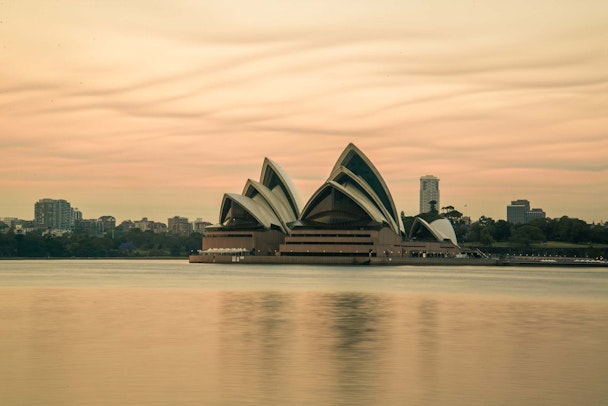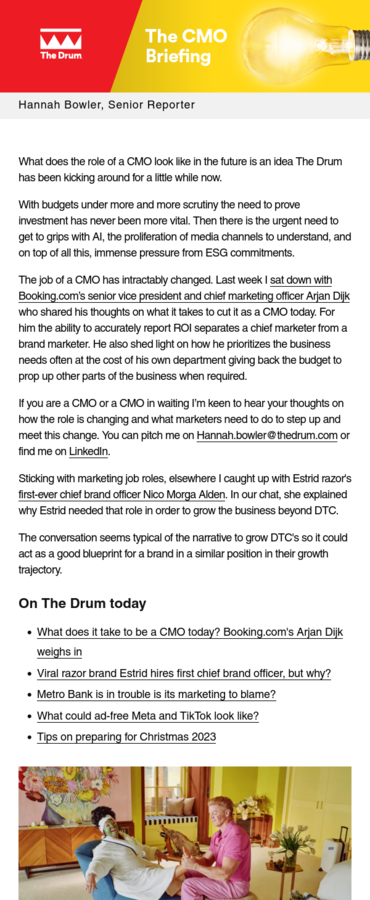Australia ramps up greenwashing pressure with court action and penalties
Australia is ramping up the pressure on corporates and brands in a bid to curb misleading environmental and sustainability claims in advertising and marketing.

The Sydney Opera House under eiree skies during Australia's bushfire crisis caused by climate change / Image by Patty Jansen from Pixabay
A flurry of activity has seen the country's corporate regulator, ASIC, launch legal action while the consumer watchdog, the ACCC, announced a wave of investigations and the UN Global Compact Network Australia (UNGCNA) added a host of heavyweight leaders from across corporate responsibility, sustainable supply chains, and marketing and diversity to its board.
The activity comes as Australia feels the unavoidable impacts of climate change with significant weather events such as bushfires and floods causing catastrophic damage across the nation. In the wake of these events, the pressure has ramped up on corporate Australia to behave responsibly.
In a national first, the Australian Securities & Investments Commission (ASIC) has taken Mercer Superannuation to court for allegedly misleading investors in the marketing of its “Sustainable Plus” funds.
ASIC alleges the “Sustainable Plus” funds were marketed with claims these funds excluded investments linked to fossil fuels, alcohol production and gambling, however, the regulator alleges those products were actually invested in companies with links to those industries, such as AGL Energy, BHP Group, Heineken Holdings and Crown Resorts.
ASIC deputy chair Sarah Court said the legal action "reflects our continuing efforts to ensure sustainability-related claims made by financial institutions are accurate."
"There is increased demand for sustainability-related financial products, and with that comes the growing risk of misleading marketing and greenwashing. If financial products make sustainable investment claims to investors and potential investors, they need to reflect the true position. If investments in certain industries like fossil fuels are said to be excluded, this promise must be upheld."
Advertisement
The legal action aims to issue a strong message to Australian financial brands to ensure their claims are accurate and will help strengthen the current crackdown by the Australian Competition and Consumer Commission (ACCC) announced a crackdown on misleading environmental claims.
The ACCC said last week it had launched "several" investigations after a sweep of 247 businesses revealed more than half made "concerning claims" about their environmental credentials or sustainability practices. While the ACCC did not disclose what penalties would be applied to businesses found to be greenwashing it did say "We will take enforcement action where it is appropriate to do so as it is critical that consumer trust in green claims is not undermined."
To capitalise on the investigations, Greenpeace announced it has requested the ACCC launch an investigation into “claims made by Toyota Motor Corporation regarding the environmental performance of its vehicles and its net-zero ambitions.”
Greenpeace alleges that Toyota misleadingly markets itself, making claims in its advertising that give the false impression the company is leading the transition to clean cars.
Advertisement
Lindsay Soutar, director of Greenpeace Australia Pacific’s Electrify campaign, said, “We believe Toyota Motor Corporation’s advertising is misleading Australian consumers by understating its cars’ emissions and overstating its commitment to clean transport.”
“Toyota Motor Corporation makes claims in its advertising that give the false impression the company is leading the transition to clean cars, but the truth is Toyota is not leading the transition but is acting globally to block the take-up of electric vehicles.
“All companies have a duty to tell the truth about their products. That standard must apply especially to a company like Toyota, which is Australia’s largest and until now most-trusted car maker. There needs to be a level playing field so that consumers can make informed choices about how to use their purchases to protect the environment.
Suggested newsletters for you
“Greenpeace Australia Pacific is making this complaint because we believe the car-buying public has a right to know the truth and must be empowered to make effective green choices.”
In response to Greenpeace's allegations, a Toyota spokesperson told The Drum, "Toyota Australia has a long track record in helping customers reduce their vehicle emissions, including through the supply of over 315,000 hybrid-electric vehicles and investment in reduced tailpipe emissions vehicles and carbon-neutral technologies. We are committed to achieving a sustainable future and reject any claims to the contrary."
In the wake of this increased focus on suatainability activity, The UN appointed three high-profile leaders to its board including marketing advisor Sunita Gloster, who is a senior advisor at Accenture & UN Women Australia, and Co-Chair Tech Council of Australia Marketing Committee.
Gloster joins the board alongside Susan Mizrahi, chief sustainability officer, Australia Post, and the chair Australian Retailers Association Sustainability Advisory Group, and Robin Mellon, leading expert on sustainable supply chains and CEO, Better Sydney, Project Manager for the Property Council of Australia’s Modern Slavery Working Group and Supplier Platform.
The UNGCNA, which works to "enable and lead" businesses and stakeholders to act responsibly by helping them find opportunities to create positive business outcomes, said it was a critical time Australian businesses and organisations, which "face significant and transformational challenges".
Gloster says, “Australia is at a coming-of-age moment for community and regulatory scrutiny that directly connects corporate behaviour with external impact.
“Marketing communications and strategy must sit at the core of ESG-related regulatory, ethical and reputation discussions not just to ensure credibility for both consumers and regulators but also to be mindful of the social impact and community trust that lies at the heart of any viable business. UNGCNA is a valuable platform to help Australian businesses embrace a sustainable future."
Australia's greenwashing push follows similar regulatory moves overseas in the EU, which has revealed strict crackdowns are on the cards, and in the UK which is also cracking down on misleading advertising. Last week the Advertising Standards Authority (ASA) banned an ad by Lufthansa that made misleading environmental claims.


